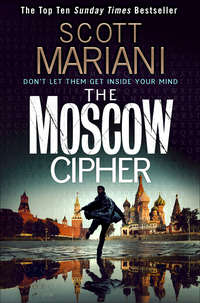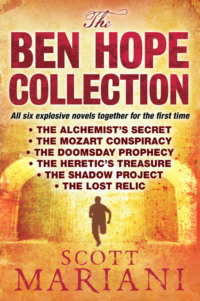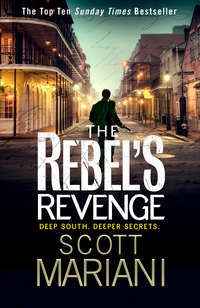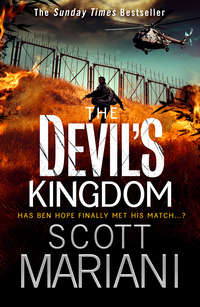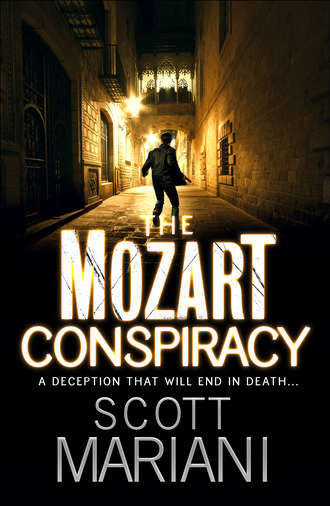
Полная версия
The Mozart Conspiracy
‘What happened?’ Leigh gasped. ‘They’re all burnt.’
The small padded envelope fell out and landed in the foot-well. Ben ignored it and sifted carefully through the rest of the file’s contents, trying not to damage the brittle papers any further.
Some of the documents had been handwritten, some computer-printed. Many were barely legible any longer, just singed fragments showing names, dates, and scraps of what looked like historical information. Here and there he could make out the name Mozart.
Leigh reached across and lifted out a badly singed sheet. It crumbled into pieces as she lifted it up. ‘This was Oliver’s writing,’ she said, biting her lip. ‘One of the notes he sent me during his travels.’
‘They’re ruined,’ Ben muttered. He laid the fragments back inside the file and closed the lid. He turned to her. ‘So what’s this about, Leigh? What did they want with Oliver’s stuff?’
‘How should I know?’
‘I don’t understand,’ he said. ‘You told me last night you’d had the notes for months. Now all of a sudden someone’s very interested in them. Why? What was in here? And how would they know you even had them?’
She looked blank.
‘Who else knows about this book project?’
There was sudden realization in her eyes. ‘Oh shit’
‘What?’
She turned to look at him. ‘About two million people know about it.’
‘What the hell are you on about?’
‘The TV interview. I was on a BBC music programme talking about next year’s European tour. I told them about my plan to carry on with the book. How Oliver had been sending me his research material, right up until the day he died, and that I’d always been too upset to look at any of it.’
‘And when was this programme on?’
She made a face. ‘Two days before they tried to snatch me in London.’
Ben felt something resting against his foot and remembered the fallen package. He leaned down and picked it up.
‘God. I recognize this,’ Leigh whispered, taking it from him. ‘It’s the package I told you about. The last one he ever sent me.’ She turned it over in her hands. ‘It was there waiting for me after the funeral. I had Pam put it in the box with the rest of the stuff.’
‘It’s got to be opened now,’ he told her.
‘I know.’
Ben tore open the singed envelope. Inside the thin layer of bubble-wrap, undamaged by the heat of the fire, was a CD case. He took it out. ‘It’s music,’ he said, showing her the cover. ‘Mozart’s opera The Magic Flute. Why did he send you this?’
She sighed. ‘It’s mine. He’d borrowed it from me. He must have been returning it.’
‘So that’s all it was.’
She slumped in her seat. ‘What’s happening, Ben?’
He opened the CD case. The yellow and silver Deutsche Grammophon disc had come loose from its fastening. It dropped in his lap. Behind it was another disc. Printed on its surface was the legend
CD-Recordable.
Underneath it, in marker pen, was an urgent scrawl:
LEIGH —Do NOT RUN THIS DISC UNDER ANY
CIRCUMSTANCES .
KEEP IT HIDDEN. I’M COMING HOME.
OLLY.
‘What the…’ Leigh reached out and pressed a button on the dashboard. The car’s CD player lit up. ‘Let’s play it.’
‘It’s not an audio disc,’ Ben said. ‘We’ll need a computer.’
An hour later they were checked into a small nearby hotel as Mr and Mrs Connors. On the way there, Ben had made a quick shopping detour. He ripped the protective wrapping off the new laptop and laid it down on the hotel-room table. In a few minutes he had the machine set up and ready to play the disc. He took the CD-ROM out of the Magic Flute case and inserted it into the computer’s disk drive. The machine whirred into action, and after a few seconds a window opened on the flat screen.
As he waited for the disc to load, Ben went to the minibar and found two miniatures of Bell’s Scotch. He cracked them open and poured them both into a single glass.
Leigh sat at the desk and peered at the screen. ‘These all seem to be photo files taken in different parts of Europe,’ she said. ‘It’s like a photo diary of Olly’s research trip.’
Ben frowned. ‘Why would he put a CD of travel snapshots into your Mozart box?’
‘I’ve no idea.’ She clicked, and the face of an old man appeared on the screen. He was in his late seventies. His face was grey and deeply scoured with wrinkles, but there was an inquisitive twinkle to the eyes. Behind him was a tall open-fronted bookcase, and Ben could make out titles of volumes bearing the names of famous composers-Chopin, Beethoven, Elgar.
‘Who’s that?’ Ben asked.
‘I don’t know him,’ she said. She clicked again. The old man disappeared and a new picture filled the screen. It was of a white stone building that looked to Ben like a small temple or some kind of monument. It had a domed top and a classical frontage. ‘This I recognize,’ she said. ‘Ravenna, Italy. That’s Dante’s tomb. I’ve been there.’
‘Why would Oliver go to Italy if his research was in Vienna?’
‘I don’t know.’
‘Did Mozart spend a lot of time in Italy?’
She thought for a moment. ‘If I remember rightly from music school, I think he spent some time in Bologna in his teens,’ she said. ‘But apart from that, I don’t think he did more than travel there occasionally.’
‘This isn’t helping us,’ Ben said. ‘Move on to the next one.’
Click. The next picture showed Oliver at a party with two pretty girls, one on each arm. They were kissing him on the cheeks as he happily toasted the camera with a cocktail.
Leigh clicked again. It was another shot from the same party. This time Oliver was sitting at a piano. On the double stool next to him sat a younger man, mid-twenties or so, and the two were playing a duet together. They seemed to be having a good time, Oliver’s face caught in mid-laugh as he hammered the keys. Around the piano there were women in party dresses, resting on it, watching him play, smiling at him, smiling at one another, drinks in their hands. Faces were glowing. It was a very natural shot of happy-looking people enjoying themselves.
Leigh couldn’t look at it for long. She clicked and moved on.
A shot of a snowy village flashed up. There were trees and mountains in the background, laced with white. Leigh frowned. ‘Switzerland?’
Ben studied it. ‘Could be. Or it could be Austria.’ He reached across, clicked and scrolled down to reveal the properties of the picture. It had been taken three days before Oliver’s death.
Leigh sighed. ‘Still doesn’t tell us anything.’
Ben walked away from the desk and left her to browse through the rest of the photographs. He went over to the bed, sat down and drained his glass in one swallow. Beside him, spread out on sheets of newspaper laid across the bed, were the charred remnants of the box-file’s contents. Sifting through them gingerly, he turned over one of the papers and winced as it crumbled away at the edges.
Underneath it he saw the burnt, tattered remains of a document that looked different from the others. The fire had eaten away most of the text in black-edged bites that looked like missing pieces from a jigsaw puzzle. Nearly all the rest was so charred that the German handwriting was barely readable. All that was left were a few disjointed phrases that meant nothing to him.
For an instant Ben thought he was holding the original, and he caught his breath. No. It was just a photocopy.
It was the Mozart letter. Richard Llewellyn’s discovery. Oliver had told the story so often that Ben still remembered it clearly.
Many years ago, the Llewellyn antique piano restoration workshop and showroom had been situated in a busy street in the centre of Builth Wells. After the death of his wife Margaret in 1987, when Leigh had been thirteen and Oliver seventeen, Richard Llewellyn had gone into decline and taken his business with him. He was drinking too much to do his work well. Custom had tailed off dramatically. Then one day a chance find in the attic of an old house promised to change Richard Llewellyn’s fortunes forever.
The decaying pianoforte had been made in the early nineteenth century by the celebrated Viennese craftsman Josef Bohm. It had travelled to Britain sometime in the 1930s and fallen out of use a long time ago. It hadn’t been stored very carefully Woodworm had infected much of the casework and it needed a major overhaul to get it back into prime condition. But even in that poor state it was one of the most beautiful instruments that Richard Llewellyn had ever come across, and he was excited by the price it might fetch at auction once it was restored-maybe ten thousand pounds, maybe even more. He put away the port and sherry bottles and got to work.
He’d never finished the job. It was while restoring one of the instrument’s legs that Llewellyn had made his discovery. The leg was hollow, and inside it he found a rolled-up document, old and yellowed and bound with a ribbon. It was a letter written in German, and dated November 1791.
When Richard Llewellyn had seen the signature at the bottom, his heart had almost given out.
The last surviving letter written by Wolfgang Amadeus Mozart before his death just weeks later. How it had found its way into the hollow piano leg was a mystery, and would remain that way forever. All Llewellyn knew was that he’d found a historic treasure that was going to change his life.
At the time, the discovery had been all Oliver could talk about. His father had taken his prize to London for the scrutiny of expert musicologists and antiquarians. But his vision of the fortune the Mozart letter was going to earn him crumbled away when the experts declared it a fake.
‘Maybe it wasn’t, though,’ Ben said out loud.
Leigh turned with a quizzical look. ‘Maybe what?’
‘Your dad’s letter. Is it possible it wasn’t a fake after all, and that’s why these people are after you? What would it be worth?’
She shook her head. ‘Dad sold it, remember? Maybe you don’t. Years ago, about the time we stopped seeing each other.’
‘Someone bought it, even though nobody believed it was genuine?’
‘Yeah.’ She smiled. ‘Just when Dad was becoming completely despondent about the whole thing, this crazy collector got in touch with him. An Italian music scholar. He made an offer for the letter. It wasn’t the kind of money Dad had dreamed of, but he accepted it right away. Then the Italian said he wanted to buy the old piano, too. It was only half-restored but he paid top dollar for it anyway. I remember it being crated up and taken away in a big van. Then Dad was solvent again. He was still hurting over the response from the experts, but at least he had some money in his pocket. That was how I was able to go to New York, to study at the music academy.’
‘What was the Italian’s name?’ Ben asked.
‘I don’t remember,’ she said after a moment’s thought. ‘It was a long time ago, and I never met him. Oliver did. He said he was ancient. I suppose he’d be dead by now.’
Ben put down the fragment of the photocopied letter and sifted through some of the other documents. Something caught his eye and he looked more closely.
The fire had eaten away the right margin of the lined notepaper. The scribbled writing on the page was Oliver’s. Ben’s eye followed a line that was written in large bold capitals, triple-underlined as though out of frustration. The end of the sentence was burnt away where the paper had darkened from yellow to brown to crumbled ash. ‘“What is the Order of R—?”’ he read aloud. ‘Do you know what that might be?’
‘I haven’t a clue.’
He chucked the sheet down with the rest of the papers. ‘Shit. What a mess.’
Leigh had finished going through the photographs. There was just one file left on the disc. He leaned on the back of her chair as she opened it up.
‘It’s not a photo file,’ he said. ‘It’s a video-clip.’
Chapter Twelve
Near Vienna
It was a murky, foggy mid-afternoon, and getting cold. The lake was beginning to freeze over, and light powdery snow was settling on its surface. Four hundred yards out across the thin ice, the pine forest was a black jagged silhouette against the grey sky.
Markus Kinski clapped his hands together and pulled up his jacket collar. He leaned back against the side of the four-wheel drive, remembering the last time he’d been back here. The day the foreigner had been brought out from under the ice.
The year was coming full circle, winter closing in again. So what was he doing back here? Maybe Monika had been right when she’d said he was obsessive by nature.
For a moment he thought about his wife. She’d been gone nearly three years now. Too young to die. Misdiagnosed twice. He missed her.
He sighed and his mind drifted back to the Llewellyn case. It had been shut months ago, but the damn thing haunted him. There was something not right about it. It had been closed too neatly, dealt with too efficiently, even by perfectionist Austrian standards. Things just didn’t happen like that. It had taken him months to get it out of his head, and then just when he was beginning to forget about the whole damn thing, who should pop up out of nowhere but Madeleine Laurent. Or whoever she was.
So far, the search for Laurent was going nowhere. The Erika Mann credit card had been real enough, but who was she? The address from the credit company had led him to a deserted warehouse in an industrial zone of the city. No big surprise.
So now there was more to add to the bunch of unanswered, nagging questions that already clustered around the Llewellyn case.
Madeleine Laurent wasn’t the only mystery connected to the drowned man. There was the matter of Fred Meyer, too. Meyer had a lot in common with Llewellyn. Too much. Both musicians, both pianists, both dead. Just a few kilometres apart, and both on the same night. Llewellyn’s watch, an old clockwork relic, had stopped when the water hit it and they pretty much knew the exact time of death. When they’d found Fred Meyer hanging in his student digs, he’d been dead about twelve hours. Which meant the two pianists had met their end within a short time of one another. Meyer first, probably, then Llewellyn soon after.
There’d been no suicide note in the Meyer case, no apparent motive. Interviews with family had thrown up no history of depression. As for most students money was tight, but he’d been careful and there was no significant debt hanging over him. No emotional problems either, and from all accounts he was getting on well with his steady girlfriend. He’d recently landed a job teaching music at a school in Salzburg and was looking forward to starting after the summer, when his studies at the Vienna Conservatoire were over. Life had been pretty good for Fred Meyer. Until he’d found himself on the end of a rope.
OK, coincidences happened and maybe there wasn’t anything to connect one musician’s foolish accident to another’s pointless suicide. At least, that was what Kinski had been trying to make himself believe over the last few months. Just one other detail stuck in his craw, like a breadcrumb that wouldn’t go down. It was the matter of the opera tickets found in Meyer’s room.
Kinski sighed and looked out across the misty lake. The ice was still too thin to walk on, but in a few weeks it would have thickened enough to take the weight of a man. He’d seen people out here skating on the lake sometimes.
He tried to imagine what it would be like to fall through ice. The shock of the freezing water, enough to stop a man’s heart. The current carrying you away under the solid ice sheet, so hard it would take a sledgehammer to fight your way back to the air just a couple of inches away.
He thought about all the different types of death he’d seen, and the looks on the faces of all the dead people his work had brought him into contact with. The look on Oliver Llewellyn’s blue, half-frozen face had been one of the worst things he’d ever seen. For months afterwards he only had to close his eyes and it was there staring at him. No shutting it out. Standing here by the lakeside was bringing that image back sharp in his mind.
He glanced at his watch. He’d been here too long. His misgivings about the case seemed to hold him here, when he should be getting back. He’d told Helga, Clara’s sitter, that he’d pick the kid up from school himself today for a change. She was growing up fast, coming on nine and a half now, and he was missing a lot of it. It would be a nice surprise for her. He was determined to spend the evening doing something fun, like taking her skating, or going to a movie. He threw everything at his child-the private bilingual school that would give her the best education, the violin lessons, the expensive toys. Clara had everything, except time with her father.
He heard footsteps coming up behind him in the frosty grass. He turned. ‘Hey, Max, where were you?’
The dog sat on his haunches and looked up expectantly with his big black head slightly cocked to one side, the rubber ball clenched in his powerful jaws. The gentle Rottweiler was old for his breed but Kinski kept him in shape.
‘Give it, then,’ Kinski said gently. ‘One throw, and then we’re out of here. Should never have come here in the first place,’ he added.
The dog dropped the ball delicately in his hand. It was slimy with saliva and mud. ‘You don’t know how lucky you are,’ Kinski said to him. ‘Chasing balls all day would suit me just fine. Better than the shit I have to deal with, believe me, my friend.’ He tossed the ball away into the long grass and watched as the dog thundered after it, sending up a spray of frosty mud.
Max hunted around for the ball, snuffling in the reeds. He looked hesitant, pawing the ground and turning his big head this way and that.
‘Don’t tell me you’ve lost it again,’ Kinski called out in exasperation. He walked over and searched among the reeds for a glimpse of blue rubber among the frosty grass and mud. The dog had flattened a lot of the rushes searching for the ball. ‘Nice going, Max,’ he muttered. ‘You know, those fucking things cost eight euros each, and how many is that you’ve lost now? Du Arschloch.’
There were cigarette butts in the mud. Kinski drew his hand away, thinking of hypodermics. Fucking junkies shitting the place up.
But then he looked more closely. He picked one up and examined it. It wasn’t a cigarette butt. It was a spent cartridge case. The brass was tarnished and dull, green in places. The rusted primer was indented in the middle where the firing pin had hit. Around the bottom of the case’s rim were stamped in tiny letters the words 9mm Parabellum—CBC.
Who’s been firing nine-mil out here? Kinski thought. He rummaged in the grass. Max stood over him, watching fixedly. He bent back a frosty clump and found another. It was just the same. Then another, and then two more, lying half-buried in the yellowed roots. He pulled the grass back in fistfuls and kept finding more. After three minutes’ searching he’d gathered up twenty-one of them, using the end of a ballpoint to pick them up and lay them in a little pile.
Twenty-one was a lot of brass. All lying in one spot. That meant a single shooter, firing all the shots from a fixed position. Too many rounds for a standard pistol, unless he was using an extended magazine. It was more likely a burst from a fully automatic weapon, about a second and a half from a typical submachine gun. Serious. Disconcerting.
He examined each cartridge case carefully in turn on the end of his pen, careful not to handle them. They all had the same scrape marks where they’d been slotted into a tight-fitting magazine, and the same slight dent on the lip where they’d been violently spat through the ejector port. The scent of cordite was long gone. He dropped the cases one by one in a small plastic bag and stored it in his jacket pocket. He straightened up. He’d forgotten the ball. He estimated the throw from the ejector and tried to figure out where the shooter might have been standing.
A thought began to form in his mind. There was nobody about. He reached down and brushed the dog’s head pensively with his fingers. ‘Come, boy.’ They walked back to the car. He opened the hatch and Max bounded inside, tongue lolling. The spare wheel was strapped to the inside wheel arch, and he unfastened it. He rolled it back down to the lakeside.
The fog was thickening all the time, and when Kinski sent the spare wheel trundling out across the frozen lake all he could see was a fuzzy patch of blackness against the grey ice. The wheel rolled to a halt, then fell over and lay still. The ice held its weight.
He reached inside his jacket and popped open the thumb-strap of his holster. He flipped off the safety on his service SIG-Sauer P226, looked around him, then fired at the ice where the wheel lay. The flat report of the 9mm pistol jabbed painfully at his eardrums and echoed far across the lake. He fired again, and again, then waited.
The ice cracked. Fifteen yards from the shore, the spare wheel slipped into the water with a gurgle.
Kinski wasn’t thinking about the cost of replacing an expensive Mercedes wheel. He was thinking about the weight of a man. Thicker ice would take more cracking. How much more? Would twenty-one rounds of 9mm do it? He felt in his pocket and heard the dull jangle of the spent cases that his gut was now telling him had been lying here since last January.
Chapter Thirteen
Oxfordshire
The video-clip was shaky and the picture quality was poor and grainy. The camera panned slowly around a big stone-walled room that was lit orange-gold by hundreds of candles. Long shadows lay across the black and white tiled floor. Three thick stone pillars stood in a wide-spaced triangle around the edges of the room, reaching to the vaulted ceiling. Against the far wall stood a raised platform, looking like a small stage. Above it, a golden sculpture of a ram’s head with long, curled horns glittered in the flickering light.
Leigh frowned. ‘What the hell is this place?’
‘I can hear something,’ Ben muttered. He turned up the volume on the laptop. The sound was the heavy breathing of whoever had been filming. Suddenly the camera whipped sideways and the picture became confused. ‘Oh, fuck’, said a frightened voice, close into the microphone.
‘That’s Oliver’s voice,’ Leigh whispered. She was gripping the edge of the table with white fingers.
They watched. The camera righted itself. A dark, craggy edge obscured a third of the picture. ‘He’s hiding behind a pillar,’ Ben said.
Some people were coming into the room. Blurred at first, the picture jerky, then sharpening up as the autofocus kicked in. The men filtered in through an archway. There were twelve or fifteen of them, all wearing black suits. The camera retreated further behind the pillar.
‘Olly, what were you doing?’ Leigh said with a sob in her voice.
Now the men were arranging themselves in a semicircle around the raised platform. They all stood in the same way, like soldiers standing to attention with their feet together and their arms clasped behind their backs. Their faces were hard to make out. The nearest was standing only a few feet from where Oliver was hiding. The camera hovered on the man’s back, travelled up to his neck and his cropped sandy hair. It autofocused on his ear. It was mangled and scarred, as though it had once been half torn off and sewn back on.
Ben turned his gaze on the platform, straining to make out the details. He realized what he was looking at was an altar. It was the focus of the room, illuminated by dozens of candles set in recesses in the wall. The centre of whatever was about to happen. It was like some kind of religious ceremony. But none that he’d ever seen before.


